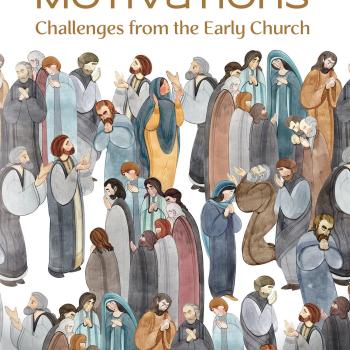 Western Christians make a big deal of the rich young ruler story (Matt. 19:16–29; Mark 10:17-30; Luke 18:18–30). The account has become the quintessential expression of a legalist trying to earn his salvation. Is this interpretation correct or is it just a caricature of the rich man?
Western Christians make a big deal of the rich young ruler story (Matt. 19:16–29; Mark 10:17-30; Luke 18:18–30). The account has become the quintessential expression of a legalist trying to earn his salvation. Is this interpretation correct or is it just a caricature of the rich man?
Our understanding of the story matters significantly because it shapes the way many people perceive a sinner’s problem and thus do evangelism. To explore this question further, let us consider what we would see if we read the text with a Chinese lens.
This post simply makes a few observations that prepare us for the upcoming post, in which I will show in what sense Jesus preached a “Chinese” gospel.
Are We Asking the Wrong Questions?
If we ask the wrong question, we’ll often get the wrong answer. Notice how Jesus reframes the entire conversation.
First, Jesus changes the question from “what is good?” to “who is good?”
The rich ruler asks, “Good Teacher, what must I do to inherit eternal life?” Jesus replies to him, “Why do you call me good? No one is good except God alone….” (Mark 10:18).
Significantly, Jesus changes the ruler’s question from a “what?” to a “who?” Rather than “what is good”, we need to consider “who is good.” So often, we misdiagnose our problem and therefore the solution. The man’s problem is that he hadn’t established the right relationship—with Jesus. In Chinese terms, he didn’t have the right guanxi.
Second, Jesus explains salvation in terms of “who?” (guanxi) not simply “what?”
Whereas the rich ruler (and we?) emphasizes “eternal life,” notice that Jesus again speaks about guanxi, a “who” question. In Mark 10:26-31, we read,
And they were exceedingly astonished, and said to him, “Then who can be saved?” Jesus looked at them and said, “With man it is impossible, but not with God. For all things are possible with God.” Peter began to say to him, “See, we have left everything and followed you.” Jesus said, “Truly, I say to you, there is no one who has left house or brothers or sisters or mother or father or children or lands, for my sake and for the gospel, who will not receive a hundredfold now in this time, houses and brothers and sisters and mothers and children and lands, with persecutions, and in the age to come eternal life. But many who are first will be last, and the last first.”
Jesus does not allow us to think merely in terms of time or personal security. Salvation has a distinctly communal aspect. We gain a big family (i.e. rather than simply losing our birth family). Conversion is a changing of group identity. In this way, Jesus expands our typical ways of thinking about salvation.
One thing we lack––relationship (guanxi)
Jesus shows us our real desire and true need. This should cause us to rethink the way we talk. People have a good but misplaced desire for relationship (guanxi). We need to reframe our gospel presentations to reflect this point.
“Who we are” to a great extent is decided by “whom we know.” We always make decisions in the context of our relationships; yet, we too often preach an individualistic message––only stressing what an individual personally must do and can get. We frequently do not talk about identity, belonging, gaining a family, and the implications for our present relationships.
Chinese are especially mindful of the importance of relationship in life. Instead of talking about works-righteousness and even bad mouthing the cultural emphasis on guanxi (as I’ve heard some westerners do), let’s take advantage of it. After all, this is a very redeemable aspect of the culture. Doesn’t the Bible make at least as much of relationship as the Chinese?
If the rich young ruler were Chinese, perhaps he might have asked, “Whom must I know to be saved?” Or, “What kind of guanxi do I need?”
If we confuse “who” and “what”…
We need to be careful not to fall into the same trap as the rich ruler.
We will never see the significance of Jesus’ message if we confuse the questions “what?” and “who?” Accordingly, we will be ill-equipped to preach the gospel as Jesus did.
As sinners, our tendency is to focus on what we get. We can easily start seeing relationships as “connections” or means to gain personal advantage. Jesus challenges this way of viewing relationships.
If we focus too much on “what” questions (what one must do, what one gets), we can wind up neglecting even more fundamental concerns like identity, relationships, and belonging.
In upcoming posts, I will highlight a few more implications for evangelism and theology.












